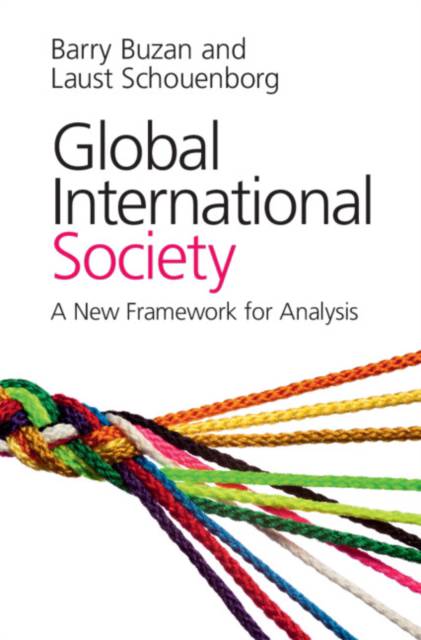
- Afhalen na 1 uur in een winkel met voorraad
- Gratis thuislevering in België vanaf € 30
- Ruim aanbod met 7 miljoen producten
- Afhalen na 1 uur in een winkel met voorraad
- Gratis thuislevering in België vanaf € 30
- Ruim aanbod met 7 miljoen producten
Zoeken
Global International Society
A New Framework for Analysis
Barry Buzan, Laust Schouenborg
Hardcover | Engels
€ 136,95
+ 273 punten
Uitvoering
Omschrijving
This ambitious book provides a new framework for analysing global international society (GIS). In doing so, it also links the English School's approach more closely to classical sociology, constructivism, liberal institutionalism, realism and postcolonialism. It retells the expansion of international society story to explain why the differences among states are as important as their similarities in understanding the structure and dynamics of contemporary GIS. Drawing on differentiation theory, it sets out four ideal-type models for international society. These cover the 'like units' of the classical English School, as well as differentiation by geography, hierarchy/privilege, and function. These models offer a systematic way to integrate international and world society, and to understand the relationship between the deep structure of primary institutions, and the vast array of intergovernmental and international non-governmental organisations. In this pioneering book, Buzan and Schouenborg present the reader with the first systematic attempt to define criteria for assessing whether international society is becoming stronger or weaker.
Specificaties
Betrokkenen
- Auteur(s):
- Uitgeverij:
Inhoud
- Aantal bladzijden:
- 286
- Taal:
- Engels
Eigenschappen
- Productcode (EAN):
- 9781108427883
- Verschijningsdatum:
- 27/09/2018
- Uitvoering:
- Hardcover
- Formaat:
- Genaaid
- Afmetingen:
- 165 mm x 229 mm
- Gewicht:
- 526 g

Alleen bij Standaard Boekhandel
+ 273 punten op je klantenkaart van Standaard Boekhandel
Beoordelingen
We publiceren alleen reviews die voldoen aan de voorwaarden voor reviews. Bekijk onze voorwaarden voor reviews.











